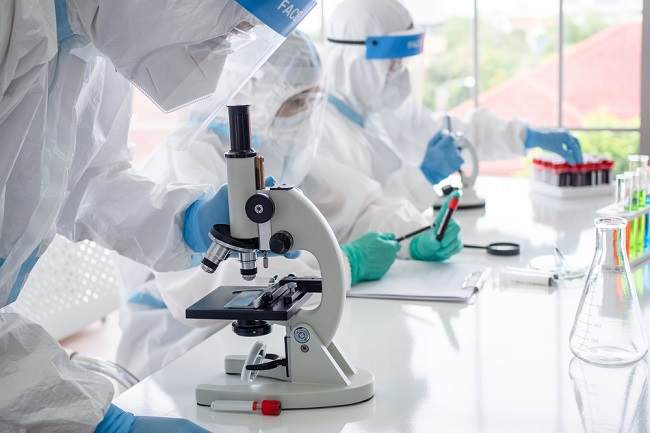Consultation with a dermatologist and genitalia needs to be done if there are complaints on the skin or genitals, especially if these complaints do not go away or get worse. Find out what conditions this specialist can treat and what needs to be prepared before consulting.
A dermatologist and venereal doctor is a specialist who specializes in diagnosing and treating various problems or diseases of the skin and genitals, including problems with hair, nails, and the lining of the mouth, nose, and eyelids.

Live Chat with Dermatologist and Venereologist here
Various Diseases Treated by Dermatologists and Venereologists
Dermatologists and veterinarians are able to treat more than 3,000 conditions affecting the skin, genitals, hair, or nails, in both children and adults.
Here are some skin diseases that are often treated by dermatologists and genitals:
- Skin inflammation and irritation, including eczema, allergic reactions, and rashes
- Viral, bacterial, fungal and parasitic infections
- Itchy or scaly skin
- psoriasis
- Scars, including acne scars and burn scars
- Skin cancer
- Pimple
- Changes in skin color or pigmentation
- Warts, cysts, moles, or other abnormal growths on the skin
- Signs of aging, such as wrinkles, sun damage, or sagging skin
- Hair loss
- Dandruff
- Nail problems, such as spots, discoloration, and splitting of nails
Meanwhile, venereal diseases that are often treated by dermatologists and veterinarians include:
- Syphilis
- Gonorrhea
- Chlamydia
- Human papillomavirus (HPV)
- Pubic lice
- Herpes
Preparation Before Consulting a Dermatologist and Venereologist
Before consulting a dermatologist and gynecologist, you should prepare the following things:
- Check your health insurance, whether you need a referral from a general practitioner or not.
- Take note of any changes and problems in the skin, including an abnormally shaped mole, new bump, or change in skin color.
- Write down all the questions you want to ask, to make sure you don't forget to ask them during the consultation.
- Bring a copy of the results of previous examinations or medical history documents if any.
- Keep a record of all medications and supplements you take. If necessary, bring the medicine and its packaging to show the doctor.
- A photo of the ingredients list for the products you use for skin care, such as body soap, face wash, serum, or lotion, especially if you have a rash or skin irritation.
Examination During Consultation with Dermatologist and Venereologist
To diagnose and treat your complaint, a dermatologist and gynecologist will ask you about your symptoms and your medical history.
After that, the doctor will examine the body part or area that is experiencing complaints. If necessary, the doctor will also perform a thorough examination, starting from the scalp to the soles of the feet. In order for the inspection to run smoothly, there are several things you need to pay attention to, including:
- Remove the nail polish so the doctor can examine the nail thoroughly.
- Avoid using hair ornaments or hairstyles that are difficult to remove, so the doctor can examine the scalp easily.
- Use clothes that can make it easier for the doctor to examine the part that is experiencing complaints.
- Don't use make-up before consulting a dermatologist and gynecologist, so that your facial skin is clearly visible.
- Do not wear accessories that can cover problem areas of the skin.
If at the initial examination found something that is still doubtful, the doctor may perform additional examinations, such as blood tests, allergy tests, skin scraping, or biopsy, to confirm the diagnosis.
When you have concluded the diagnosis from the complaints you are experiencing, the dermatologist and venereal will provide treatment according to your condition. Treatment may include medication, skin care procedures, medical procedures, or minor surgery.
Dermatologists and veterinarians also have a role in preventive efforts, namely efforts to prevent or reduce the risk of skin problems in the future. Skin problems that can be prevented include premature aging and skin cancer. Therefore, do not hesitate to regularly consult a dermatologist and gynecologist.
Make the most of the consultation time with a dermatologist and gynecologist. If there's something you still don't understand, don't hesitate to ask questions until you do. If necessary, repeat or draw a brief conclusion at the end of the conversation with the doctor to ensure that the information you receive is correct.
If you still have questions after having a direct consultation with a dermatologist and gynecologist, you can ask via chat with a dermatologist and gynecologist in the ALODOKTER app.









